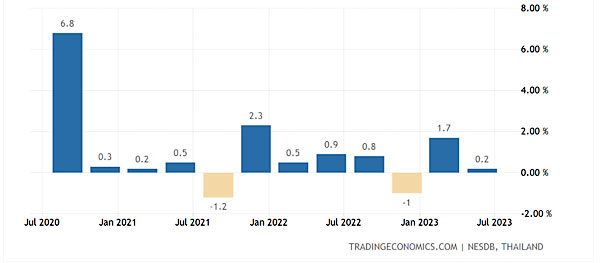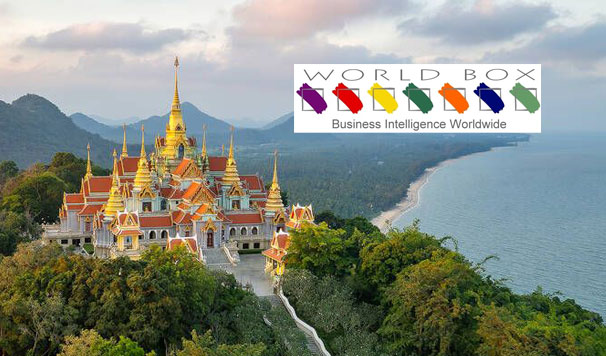The selection of Srettha Thavisin as Thailand’s prime minister has brought to an end months of uncertainty and reaffirmed the grip of Thailand’s establishment on the levers of power. It has also dashed the hopes of millions of Thais who wanted a pro-democracy government.
 Adrian Ashurst, CEO of Worldbox Intelligence, examines what is likely to happen next.
Adrian Ashurst, CEO of Worldbox Intelligence, examines what is likely to happen next.
After an election that appeared to redraw the political map of Thailand and brought hopes of real change to millions of Thais, many are now asking why the future they voted for is looking so much like the past, according to the New York Times. 1
That disappointment follows the news in August that Pheu Thai’s candidate, Srettha Thavisin, had secured enough votes in parliament to become the next prime minister. Pheu Thai relied on the military’s support to achieve that goal, despite vowing repeatedly in the past to remove the generals from politics.
The progressive Move Forward Party, which won the most votes in the May election, was blocked from taking power by conservative senators – all of whom were appointed by the army, following its 2014 coup. Thavisin’s appointment as prime minister cements his party’s coalition with its former military rivals.
While critics say the formation of the new government betrays the voters, Pheu Thai leaders argue it was a necessity for ending the political deadlock and creating reconciliation.
The coalition of 11 parties has agreed to support Pheu Thai’s platform of boosting the economy, increasing the minimum wage and ending mandatory conscription. The government will also work to amend the constitution to make the country “become more democratic”, while leaving the royal defamation law untouched, Pheu Thai said.
Meanwhile, Move Forward said its commitment to changing the royal defamation law had made it impossible to rally enough support from other parties and the Senate.
The return of Thaksin Shinawatra, the ousted former prime minister of Thailand and patriarch of the Pheu Thai political juggernaut, just before Srettha Thavisin won the parliamentary vote, added another layer of intrigue to the drama.
There were rumours that Thaksin’s return was part of a wider arrangement with the country’s powerful military and royalist establishment, involving a reduced jail term in exchange for blocking Move Forward from enacting its reformist policies, which targeted the establishment. Those rumours gained credibility when Thaksin received only a one-year jail sentence with the likelihood he will be released much sooner.
Turbulence to continue?
The 11-member coalition includes bitter rivals, and it is unclear whether Thavisin and Pheu Thai will be able to govern effectively or how long the alliance will last. Barring a couple of exceptions, no government in Thailand has lasted its full term in the past two decades.
Thavisin “has little political experience, is not popular with some even in his own party, and will be hostage to the wishes of the Shinawatra family, just as Mr Thaksin is hostage to his own need to stay out of jail”, according to the BBC. 2
Moreover, Pheu Thai’s deal with the military could alienate its own “red shirt” supporters. The BBC reports that many say they will stop backing the party. The new coalition, after all, contains most of the parties from the outgoing, military-backed administration that was responsible for ousting the last Pheu Thai government in 2014, and for the military operation against pro-Thaksin protesters in 2010 that killed dozens of people.
Meanwhile, the supporters of Move Forward are likely to be angry that the change the election promised will now be unrealised. Whether that anger takes the form of street protests or civil disobedience is unclear.
However, some analysts argue that, whatever happens, the new coalition will be better than the military-led government that preceded it. Thitinan Pongsudhirak, a professor of political science at Chulalongkorn University, recently told CNN that:
“The bar is very low. Pheu Thai does know the business of government, they will know how to get some things done… It will be unruly with corruption allegations but it might get Thailand moving more than before.”
Economic challenge
The new government is likely to focus its early efforts on the Thai economy, with the hope that making people feel better off will help them forget the unseemly way the coalition was brought about.
Figure 1: Thailand’s faltering economy (% growth in GDP), 2020-2023

Source: https://tradingeconomics.com/thailand/gdp-growth
However, reinvigorating the economy is likely to prove a severe challenge. The Thai economy expanded by just 1.8% in the second quarter from a year earlier, according to data released by the National Economic and Social Development Council (NESDC).
Exports, which account for around 60% of GDP, continued to suffer from weak global demand, particularly from China, Thailand’s biggest trading partner.
The head of the NESDC, Danucha Pichayanan, warned that investor confidence will suffer further if problems arise in the transition to a new government:
“If there are drastic events in the transition, it will affect investor confidence” 3
There are also calls for widespread reforms to boost long-term growth, which has slowed significantly in recent years.
According to the World Bank, average growth in total factor productivity (TFP) stagnated from a high of 3.6% per annum during the early 2000s to just 1.3% during 2009–2017. Private investment declined from more than 40% of GDP in 1997 to 16.9% in 2019, while foreign direct investment flows and participation in global value chains have shown signs of stagnation. 4
However, driving the required reforms through such a large and disparate coalition would require the skills of a much more experienced political operator than Thavisin.
In conclusion, the establishment does appear to have stymied the reformers, as represented by Move Forward, for the time being. A number of outcomes are possible in the coming year or two. (It seems unlikely that the coalition will last much longer than that.) There could be another election, although whether Thavisin will be allowed to take part is a moot point. The establishment could well try and outlaw the party. Even if Move Forward does participate and emerges victorious, it may have to abandon its more radical reform ambitions. Taking on the royal–military establishment head-on does not appear a realistic ambition, as Move Forward and its supporters have just found out.
1 https://www.nytimes.com/2023/08/24/world/asia/thailand-pheu-thai-prime-minister.html
2 https://www.bbc.com/news/world-asia-66591063
3 https://www.reuters.com/markets/asia/thai-q2-gdp-grows-below-forecast-18-outlook-trimmed-2023-08-21/
4 https://www.worldbank.org/en/country/thailand/overview
Source: Worldbox Press Release
About Worldbox Business Intelligence
Worldbox Business Intelligence, headquartered in Switzerland, is a Global API data solution provider of business intelligence and used in data analytics.
With the Global API solution Worldbox Business Intelligence enables clients and partners also a frictionless real time onboarding, KYC and compliance verification while rapid global investigations are provided, if needed.
Worldbox Business Intelligence provides global data in a standardised structure to more than 200 Million companies worldwide. The global network of subsidiaries, branches and desks allows to precisely and efficiently collect data and target key territories for clients and partners.”
“Worldbox Business Intelligence – Bringing Swiss Precision To Data”
Copyright (C) 2023 Worldbox Business Intelligence. All rights reserved.
Our mailing address is:
Worldbox Business Intelligence
Breitackerstrasse 1
Zollikon
Zurich 8702
Switzerland





























